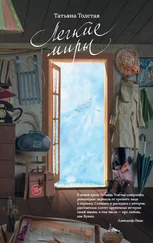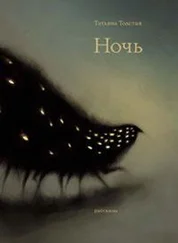Due to Curly’s architectural logic, all the bedrooms in the house were interconnected: if someone entered your room, you could quickly escape through a different door. But there were a lot of us, more than there were doors, so Aunty Lola was usually able to apprehend someone. Placing her cold hands on your waist, firmly holding on as your body tried to wriggle free, Aunty Lola would start up an empty, meaningless conversation: “When I was in the seventh grade at the lycée, we had a geography teacher who thought that the best way to learn the subject was to travel around the countries you meant to study. And I must say, I completely agree with him. Suppose you are learning about Germany or France—”
“Auntylola!” We’d laugh, yelling into her hearing aid, as she was practically deaf from that same explosion d’obus. “What year did he say that? Nineteen fifteen? What about Alsace-Lorraine? It’s both Germany and France at the same time!”
“Well, of course not during the Great War,” Aunty Lola would say, starting up a new thread. “One can only talk about such excursions in peaceful times—”
“Auntylola! Are these peaceful times? Just try getting a visa to stinking Bulgaria, Auntylola! The party won’t allow it! Lasciate ogni speranza, voi ch’entrate, Auntylola!”
—
Directly underneath Aunty Lola’s fortress chamber, on the first floor, there was what we called “the Green Room,” its name taken from the green linoleum that Mother had installed there—installed with her two bare hands, of course: moved the furniture, unrolled the linoleum, and nailed it down as needed.
This room saw more foot traffic than any other room in the world. It had one window and three doors: one leading to the sunroom, one to the kitchen, and one to a bedroom shared by four people. It also had an armchair and a TV that was always on. Through this room we’d ferry pots of soup and pans of meat, salad bowls of greens and glass bowls of compote; we’d pass through to bring clean dishes and to carry back dirty ones. You couldn’t possibly live in this room, and yet Klavdiya Alekseevna—Klavsevna—did. Somehow amid the constantly opening and closing doors, the chair and the TV stand, the bookcase and the window, a narrow, maiden’s bed was wedged in. Klavsevna would sleep in it half sitting up, just as in medieval paintings.
A quick estimate: the house had fifteen people, half of whom were children, so that’s more like twenty-five people—kids exist simultaneously in two places, the coordinates of which quantum mechanics does not allow us to identify precisely. Twenty-five people regularly taking their meals three times a day, and irregularly bursting into the sunroom for an apple or a cookie, so that’s another two times—or five in total. Twenty-five times five—I get one hundred twenty-five, what about you?—so that’s one hundred and twenty-five passes through the Green Room just for the food, not counting the TV watching, with shouting matches over what to switch on: cartoons or the evening news? And what if there’s boxing on? Or a movie, especially a crime drama? And what about adults coming and going to sweep the floor, iron the laundry, or lug firewood, not to mention all the children running, screaming, playing tag or perhaps even something more dangerous? In the midst of this purgatory, the meek and docile Klavsevna was able to exist only on condition of her own invisibility—she had perfected the art of living unseen, almost to the point of disappearing completely.
It’s impossible to imagine Aunty Lola invisible. Her special cup—better not touch it! Her special chair—better not move it! Loud and simpleminded stories of a partially deaf person—“And then the doctor says to me: ‘Remember, you have a friend!’ And I thought: He’s talking about himself, and I was so very grateful to him. But he continues: ‘Farmer cheese! Remember that farmer cheese is your friend!’” Aunty Lola would let her presence be known clearly and assertively. She made tracks in our lives; she was a force to be reckoned with.
Or take Nanny, a firm and stiff-necked person who loved us but disapproved of our lifestyle, and who was constantly nagging us—she, too, was a force to be reckoned with, and her presence hung in every room like a lingering scent. During the daytime we were “god-damned blockheads” or “rotten treasures,” and come evening she’d sigh, “You are all so sweet when you’re sleeping.” When the older sisters began sneaking out on dates, she’d grumble, “You should get it all sewn up,” and we younger siblings were dying to know: Get what sewn up, and where? But Nanny wouldn’t elaborate.
Klavsevna, however, was invisible. There was an armchair in the sunroom that she really loved, but this chair was considered to be Father’s, and when he arrived on the weekends she’d disappear into thin air as soon as he’d set foot in the house—only her shadow would flicker. I don’t remember her in any of the rooms except for the green one; I don’t believe she ever went up to the second floor; in the kitchen she’d blend in with the appliances, such as the hot plate with the “Left only: low heat” mantra; in the garden she’d blend in with the bushes. Sure, she was subdued and spoke infrequently, but that wasn’t it—she didn’t emit any interference, didn’t send out any signals, didn’t produce any energy waves.
Klavsevna had a distinctive appearance. She was close to seventy, but her face was lively and she must have been very pretty in her youth. A sleek turned-up nose, blue eyes that sparkled with laughter, peach fuzz on her otherwise bald head, impressive height—it was possible to picture, by straining your imagination, how svelte and comely she had once been. Klavsevna wasn’t blessed with brains, however, and this was for the best: thinking would have been a hindrance for her; she believed only Jesus and her doctor, who told her to put yellow drops in her eyes twice daily, to sleep propped up on a big pillow, and to avoid looking in the dark.
Avoid looking in the dark! Klavsevna took that literally, and it was impossible to dissuade her. She made her bed, which was situated at the intersection of all roads, in such a way that at the head was a fortress of pillows and props that precluded her lying down. She’d turn on the lamp and sit in her bed amid the horde, looking straight ahead with the tactful smile of one who doesn’t want to disturb anyone else with her presence, until Morpheus finally would descend to dim her sight. This somewhat unnerved her, for when you close your eyes all goes dark, and the doctor had advised against that. When venturing out to the far corner of the garden to relieve herself into Curly’s brainchild—the communal two-holer—Klavsevna was afraid to look into the darkness there as well, and so she’d use the pit of her choice with the door wide open. This allowed her to see from afar who was approaching with similar purpose via the walkway, and to immediately disappear before disturbing them.
Before her retirement, Klavsevna had been a typist at a company that sold loose face powder (White Nights, Carmen, Lily of the Valley), floral perfumes (Red Poppies, Chypre, Lilac), and other sweet-smelling womanly toiletries. Our neighbor from across the street, a sullen, greedy man by the name of Mikhail Bernig, used to work at the same company as a bookkeeper, and at some point, soon after the war—we were still living in the White House then—he told all his colleagues about the wonderful pine trees in our lake region, about the empty beaches of Hepojarvi, and suggested our slice of heaven as a place to take salubrious strolls with parasols. Klavsevna, then a not-so-young and lonely maiden, came to our community with some friends and, while walking, caught a glimpse of my sister Natasha, then four. Klavsevna’s heart skipped a beat. Everyone’s heart skipped a beat when they saw Natasha. All blond curls and gray eyes—she resembled a magical, sad doll, with a lost gaze, as if all her relatives are gone but she’s not complaining, just quietly grieving. Even those with several children of their own wanted to scoop her up, cover her with kisses, and adopt her. Klavsevna was gone.
Читать дальше






